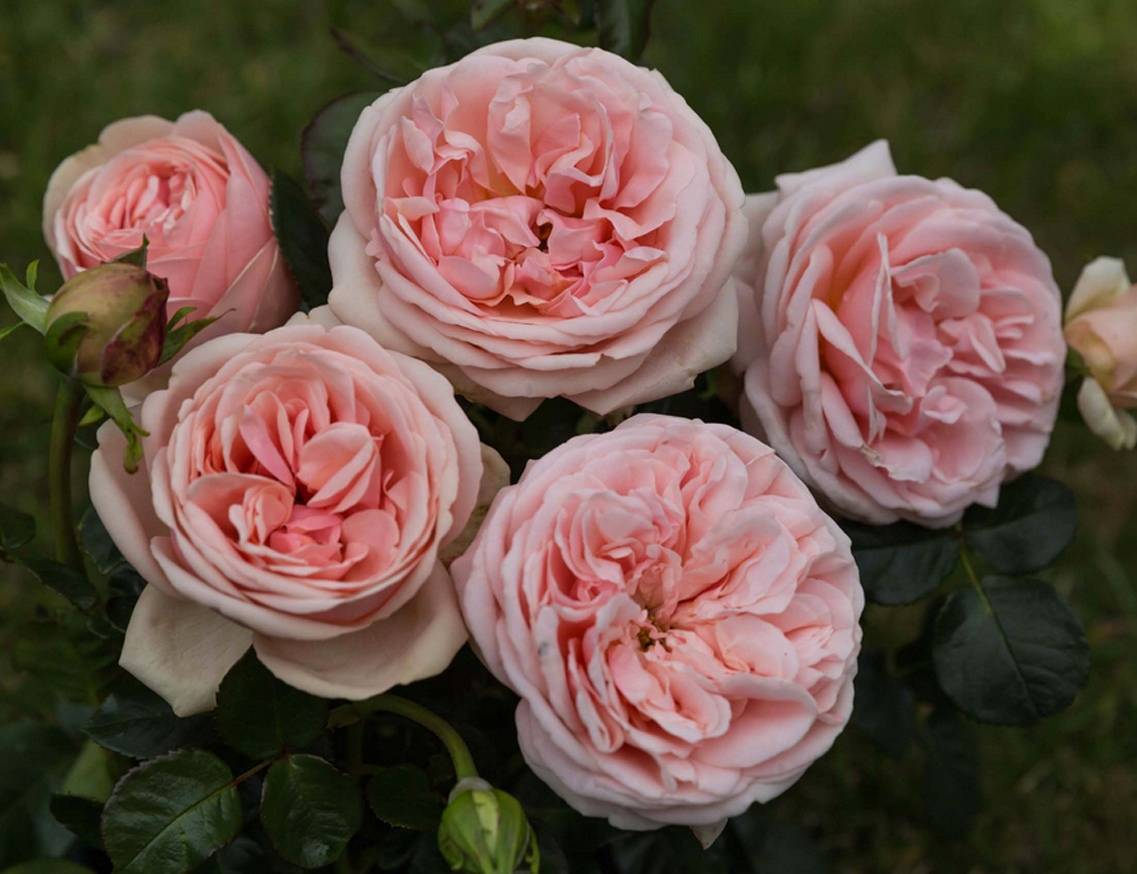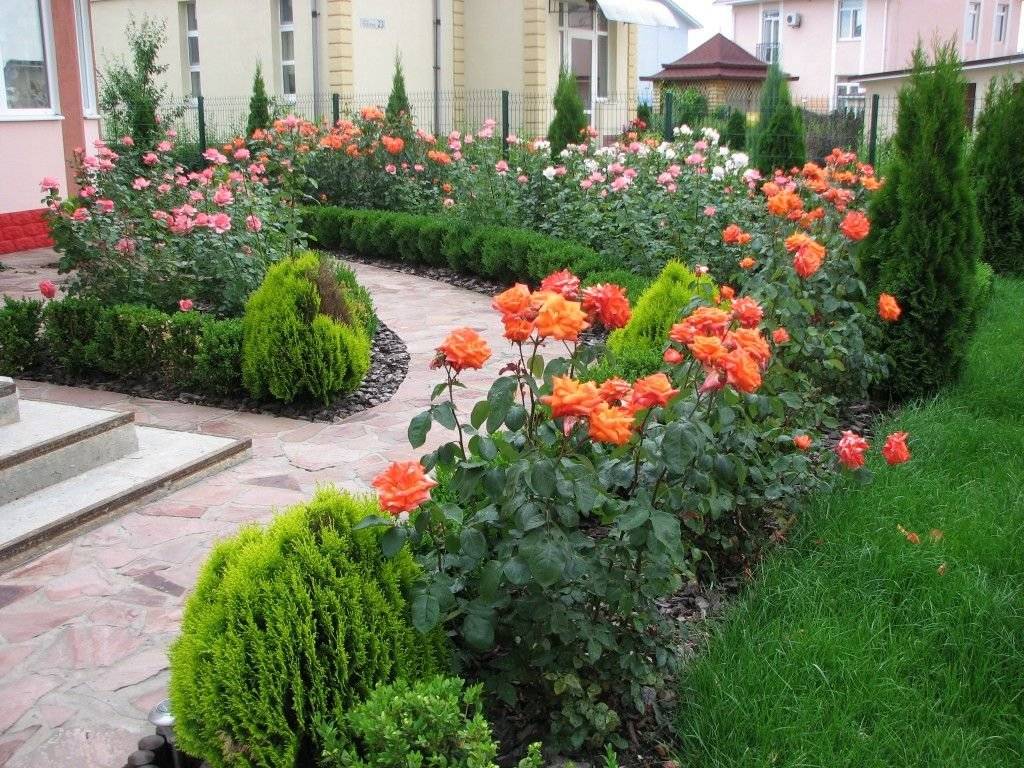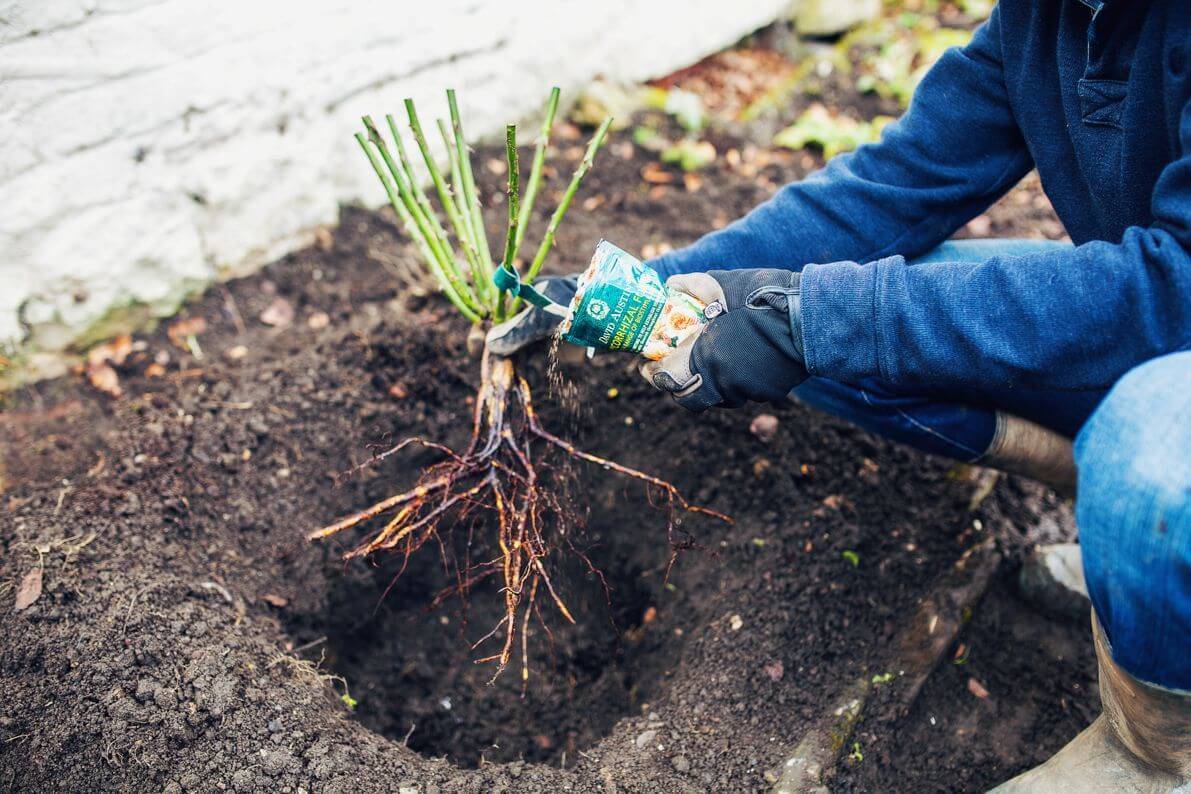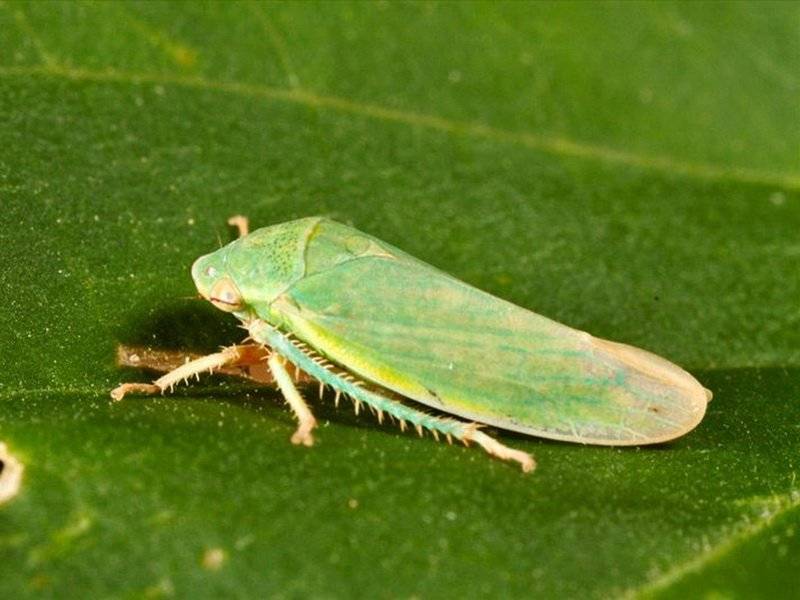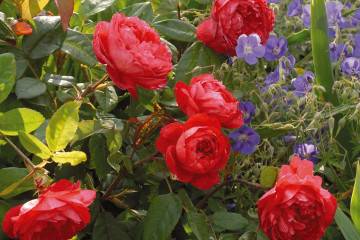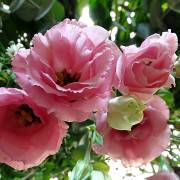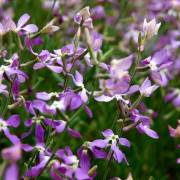Rose Aphrodite (Aphrodite) - variety description
Content:
Rose hybrid tea Aphrodite is named after the ancient Greek goddess of beauty and love. The flower fully justifies its name, and flower growers happily decorate their summer cottages with it. However, Aphrodite needs constant and proper care.
Description and history of the creation of the variety
Aphrodite is a rose created by the German company Tantau. Her breeders in 2006 were able to breed a new species that is distinguished by its beauty and good characteristics. The new rose quickly gained popularity among gardeners in Europe and then around the world.
The bush of Aphrodite reaches a height of 80 cm and more than half a meter in diameter. Leaves are dark green in color, dense structure. The blossoming buds grow up to 10-12 cm in diameter and have a delicate pink tint.
Advantages and disadvantages
The rose has the following advantages:
- high frost resistance;
- strong, pleasant aroma;
- profuse flowering, takes place in several stages;
- blossoming buds retain their decorative shape for a long time;
- the plant easily tolerates high humidity and strong winds.
The disadvantages include:
- shelter is needed for the winter;
- high quality soil is required for cultivation.
Due to her appearance, Aphrodite is often used when creating landscaping. It is planted in flower beds, mixborders, curbs and low hedges.
Growing and planting outdoors
It is recommended to buy rose seedlings in specialized stores or nurseries. When buying, you need to make sure that the root system and stems are healthy.
The place is chosen so that it is in partial shade and protected from drafts. The soil for planting Aphrodite must be prepared in advance. At the end of summer, the site is cleared of debris, weeds and dug up. Mineral or organic fertilizers are applied and the planting site is covered with a layer of mulch.
Landing time and technology
It is best to plant the plant in open ground in the fall. So the bush will have time to take root before the onset of frost, without being distracted by the growth of the aboveground part.
Landing is performed in the following sequence:
- A hole is dug 40x40x40 cm.
- Dry and diseased branches, damaged roots are removed from the seedling.
- The seedling is placed in the hole so that its roots are free in it.
- The hole is covered with earth, compacted and watered.
Plant care
The Aphrodite rose variety needs proper care for full growth. Aphrodite must be watered at least 2 times a week. On hot days, you can do this more often. It is best to perform the procedure in the evening. One bush requires 10 liters of water.
Fertilize the rose during the period of bud formation and a few weeks after the end of flowering. In the spring, organic fertilizers are used; in the fall, it is advisable to choose mineral fertilizers.
Pruning and replanting
You need to prune the bush three times a year. Dead and old shoots are removed in the spring.Formative pruning is performed in the summer. In the fall, the plant is prepared for wintering, so all branches are removed.
In October, the plant is treated with agents against pests and diseases, fed and mulched. With the onset of frost, the bush is insulated with spruce branches or non-woven materials.
Bloom
Aphrodite's buds are densely double, of the correct cup-shaped shape. One flower has approximately 40 petals. Flowering takes place in 3-4 stages. It starts at the end of June and ends at the beginning of September. During the growing season, the rose does not require special care.
If the rose Aphrodite has not bloomed, then this may be for the following reasons:
- insufficient lighting;
- bad soil;
- illness;
- excessive or insufficient feeding;
- incorrect preparation for wintering.
In most cases, flowering can be restored if the cause of its absence is eliminated.
Reproduction
Most often, the rose is propagated by cuttings. For this, parts of shoots with three leaves are cut. The cut is processed by "Kornevin", and the cutting is placed in a solution of a growth stimulator. Then it is planted in a pot and covered with a plastic bottle. When the seedling takes root, it is moved to open ground.
Diseases, pests and ways to control them
Although the rose is highly immune, it can fall prey to the following problems:
- black spot;
- powdery mildew;
- gray rot;
- viral mosaic;
- spider mite;
- rose cicada;
- rose leaf roll.
If problems arise, you must immediately take steps to eliminate them. The plant must be treated with fungicides or insecticides and the affected areas removed.
By fulfilling all the basic requirements for growing and caring for the Aphrodite rose, you can get a bright, fragrant plant that will become a real decoration of the garden plot.
